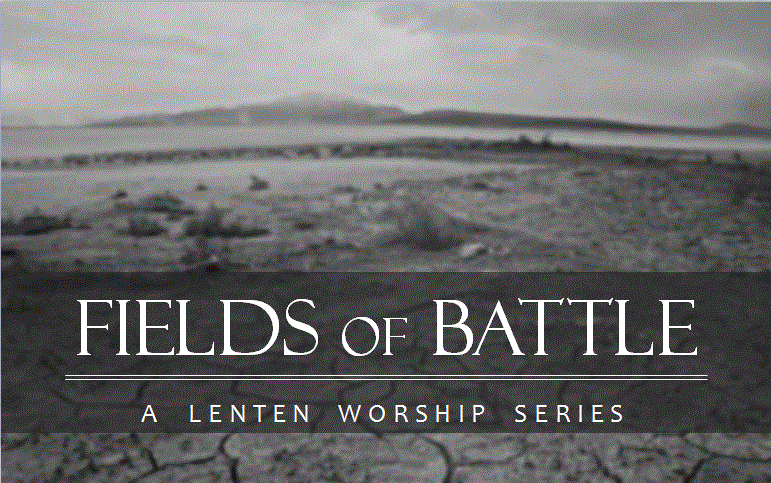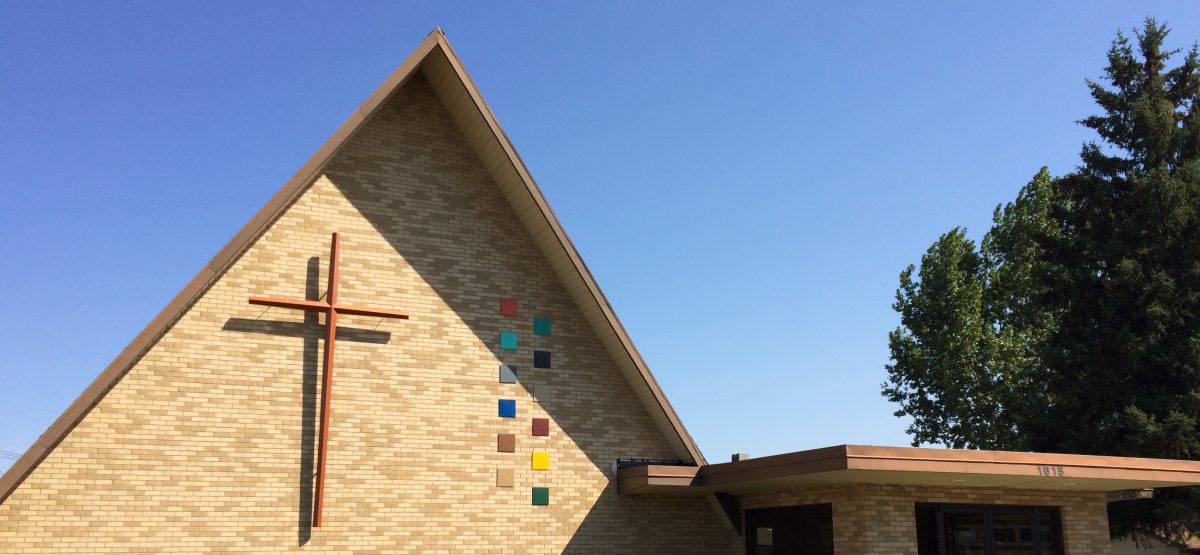
John 4
4 Now he had to go through Samaria. 5 So he came to a town in Samaria called Sychar, near the plot of ground Jacob had given to his son Joseph. 6 Jacob’s well was there, and Jesus, tired as he was from the journey, sat down by the well. It was about the sixth hour.
7 When a Samaritan woman came to draw water, Jesus said to her, “Will you give me a drink?” 8 (His disciples had gone into the town to buy food.)
9 The Samaritan woman said to him, “You are a Jew and I am a Samaritan woman. How can you ask me for a drink?” (For Jews do not associate with Samaritans.)
10 Jesus answered her, “If you knew the gift of God and who it is that asks you for a drink, you would have asked him and he would have given you living water.”
11 “Sir,” the woman said, “you have nothing to draw with and the well is deep. Where can you get this living water? 12 Are you greater than our father Jacob, who gave us the well and drank from it himself, as did also his sons and his flocks and herds?”
13 Jesus answered, “Everyone who drinks this water will be thirsty again, 14 but whoever drinks the water I give him will never thirst. Indeed, the water I give him will become in him a spring of water welling up to eternal life.”
15 The woman said to him, “Sir, give me this water so that I won’t get thirsty and have to keep coming here to draw water.”
16 He told her, “Go, call your husband and come back.”
17 “I have no husband,” she replied.
Jesus said to her, “You are right when you say you have no husband. 18 The fact is, you have had five husbands, and the man you now have is not your husband. What you have just said is quite true.”
19 “Sir,” the woman said, “I can see that you are a prophet. 20 Our fathers worshiped on this mountain, but you Jews claim that the place where we must worship is in Jerusalem.”
21 Jesus declared, “Believe me, woman, a time is coming when you will worship the Father neither on this mountain nor in Jerusalem. 22 You Samaritans worship what you do not know; we worship what we do know, for salvation is from the Jews. 23 Yet a time is coming and has now come when the true worshipers will worship the Father in spirit and truth, for they are the kind of worshipers the Father seeks. 24 God is spirit, and his worshipers must worship in spirit and in truth.”
25 The woman said, “I know that Messiah” (called Christ) “is coming. When he comes, he will explain everything to us.”
26 Then Jesus declared, “I who speak to you am he.”
A battleground for water, does that sound familiar? In North Dakota? Absolutely. Today, that is exactly what God sets before us at this next stop in our Fields of Battle series.
Jesus is at a well in Samaria. He’s tired and thirsty from traveling. Going north from Judea to Sychar is around 30 miles. That’s not a one-day hike, and this is desert we’re talking about. One thing you need in the desert while you’re on a journey is… water! It makes sense that a very human and tired Jesus would stop at a well for a drink and some rest during lunch hour.
But not at this well. This well, Jacob’s well, is in the middle of Samaria. Jews tried to avoid Samaria like the plague. Jews do not associate with Samaritans, we’re told. To say it plainly, Jews were racist against Samaritans. They were half breeds, part Jew but part foreigner. And this was unacceptable to Israelites, the pure descendants of Abraham, Isaac, and Jacob. They hated Samaria so much that they went around it while traveling north to Galilee. So a man like Jesus, being from the clan of Judah, a descendant of King David, really wasn’t seen in Samaria all that often. So this really isn’t the kind of place where Jews would be normally found.
But that’s not what makes this a field of battle; it’s not the Jew vs. Samaritan fight. The Savior of the world isn’t a racist. And it’s not a field of battle because Jesus runs into a woman who had such an “interesting” (immoral) past, someone who has different lifestyle choices than Jesus and different religious practices than Jesus. No, this isn’t a field of battle for those things. Jesus had to go through Samaria. This is a field of battle because she’s a thirsty woman struggling unsuccessfully to quench her desire for peace.
Jesus is the one who asks for a drink, but it’s the woman who is really thirsty. She thought her first husband was her soulmate. Maybe it wasn’t really love but passion and romance, or maybe he got abusive, maybe it was a mix and match of mistakes by both, maybe she was unfaithful. Who knows the reason? We know the outcome; it didn’t last. She had that divorce on her record, and God hates divorce. It ruins families and the fabric of society. It draws dividing lines and makes more battles.
She thought the second man was better. He wasn’t going to be like the first one, but maybe she rushed it. The third one, maybe she took her time to find the kind of man her family would approve of. It didn’t matter. Who knows what it was for each failure? But 5 marriages went down the drain. And each time it made her realize just how thirsty for peace and fulfillment she was, and how it was always out of her grasp. Sex, romance, companionship, family, those things can’t quench the heart that is thirsting for peace.
So she gave up on marriage and just started shacking up with another man. If she couldn’t make a commitment work, then she would just do whatever she needed to get what she wanted. But you know what? This woman was still thirsty. That’s why he had to be there in Samaria, where Jews just didn’t go. He had this field of battle by a well, a battle of thirst, a battle of what the law does to us and what the promise does for us.
Do you know what that’s like? Do you know what happens in the battle of the law vs. the promise? Do you know what it’s like to make poor choices because you are thirsty for peace, thirsty for love, thirsty to fit in, thirsty for success, or thirsty for fulfillment? Have you ever compromised on what God says because you were more interested in your own desires? Like this woman, she had given up on marriage but she still wanted a man in her life. Her own desires were more important than anything else. Being thirsty can make a person do desperate things like that.
Now you haven’t gone through 5 marriages, but we sometimes make the same desperate compromises. What kinds of compromises are they? “As long as I don’t live together with my boyfriend or girlfriend, we can do pretty much whatever we want, and no one will know.” “I might have a foul mouth, but at least I don’t struggle with drinking or drugs.” Sometimes it gets a bit more desperate. “I’ll try anything to cover up my mistakes. If I have to lie, I will. If I have to drag others down, I will. If I have to carry a heavy load of guilt, I have enough strength.” Whatever it is, we try to find ways to quench our thirst.
But the law doesn’t allow that, does it? The law never makes anyone – from a train wreck of a woman who had given up on marriage to people like us – the law never brings peace, fulfillment, or contentment. The law makes our thirsty souls desperately aware of just how bad our condition is. The law says you are just as immoral as this woman even if you haven’t sifted through men like her just by the kinds of thoughts you might have. The law says your foul mouth makes you foul to God. The law says you can’t hide mistakes with lies, cover ups, or ignorance. The law says you are thirsty and the search for water is never-ending and never-satisfying.
Jesus wanted the woman to acknowledge this. Do you see how Jesus whittles away to get to it? First, he asks for a drink. When she is confused that a Jewish man would ask a Samaritan woman, Jesus says, “If you knew the gift of God and who it is that asks you for a drink, you would have asked him and he would have given you living water.” He is trying to get her to see her thirsty situation. But she doesn’t see it. She only sees her own thoughts and desires. Jesus says this physical water isn’t what you need. You need living water. She still doesn’t get it. She thinks not having to make the trip to the well will help her.
So Jesus takes it a step farther. “Go, call your husband and come back.” She responds trying to cover up her failures, but she doesn’t realize the stranger talking to her knows everything. This is why he’s at the well. As her Savior, he loves this woman and wants her to see just how thirsty she is. And so he says something that hurts. He lets her taste the truth. Sometimes when you love someone, you have to hurt them to help them. It’s like a spanking. Or it’s like taking a teenager’s cell phone away. You love your child so you do something that will hurt them now, knowing it helps in the long run.
But she is still trying to find answers to her questions. All she cares about is herself. And the law doesn’t help people who only care about themselves. It continues to make them thirsty for more. Now, the question isn’t about water or a well. Now, that she thinks she is talking to a powerful prophet, she wants to ask about the right rules of worship. “We like this mountain in Samaria where, back in the days of Abraham, Isaac, and Jacob, they built altars here for worship, but Jews keep saying the only place to truly worship is in the Temple.”
That’s like the person who says, “I can worship on my own.” Or the one who says, “I like to worship God by enjoying his creation.” Or some who say, “The only thing the church cares about is money.” Or there’s people who say, “I like God, the Bible, and all that, but I know it’s not that popular at school or at work. I’ll just be a Sunday Christian and God will understand.” Anyone who talks this way is trying to quench their own desires. They are fixated on themselves and their own rules.
And that doesn’t work. Do you know what happens to people who try to make compromises on what God says? Do you know what happens when we try to fit in with the world? Do you know what happens when we try to quench our thirst in our own ways? The law crushes us.
That’s where this woman is at. When Jesus says, worship is not about the building or the place but worship is about truth and it is done in spirit (the truth of God in his Word and the spiritual faith in God’s promises), that’s where she finally reaches that critical point. “Someone is coming. He’s the Messiah. He’s the one who has answers. He’s the one who will quench my thirst.”
That’s why Jesus was at the well that day, for a battle of the law vs. the promise. The law leaves people thirsty and dying. The law exposes us to the point where we have nothing to hide and nowhere to go. The only thing we can do is throw our hands up in anguish, saying, “Someone has to figure this out! I’m lost. I’m thirsty. I’m dying. Someone needs to save me from this.”
Jesus says, “I, the one speaking to you – I am he.” He says he’s the one for the job to fix our thirsting soul’s problem, because he has living water. It’s not the kind of water that quenches earthly thirsts – like people who are looking for peace on earth, success in their career, contentment in their family, fulfillment in their marriage. He does give those blessings, but those blessings flow from the living water not the other way around.
The law makes us thirsty like this woman, and Jesus has a promise that quenches our spirit. Whoever drinks the water I give them will never thirst. Indeed, the water I give them will become in them a spring of water welling up to eternal life. Jesus decided that he would do everything to make this water ours. He would come here, he would make the full payment, and then he would distribute it without bias and favoritism but with love and compassion for all, even people like this woman, who live a thirsty life. That is for whom Jesus came, the thirsty.
His promise is that his water will satisfy and sustain us not just for a lifetime but for eternity. And he can make that promise, because his life didn’t end here on earth in a tomb. He is the living one forever. And so this water that he gives last just as long, for eternity. Faith in Jesus will refresh our thirsty souls forever.
Jesus’ promise gives us this eternal faith. And do you know where our faith is watered? It’s not on a specific ancient mountain. It’s not in a tabernacle, temple, or cathedral. It’s here. Here God has his truth for us. Here we are in the presence of God. That’s how we are starting each service during lent, with those words, “we have come into God’s presence.” It’s not because of this building, it’s because God has his truth for us in his word. With this truth, our faith is watered and will never be thirsty. Our spirit will be with the Lord now and forever.
Jesus is here right now with us just like he was at the well. He is quenching our thirsty souls with his living water. Do you know what happens after Jesus tells the woman who he is? The guy who wrote this down for us under inspiration from the Spirit happened to be there. John was one of the disciples who had gone into Sychar to get food. Well, he came back with the other disciples to eat with Jesus. They saw this woman, and this is what John writes down, “leaving her water jar, the woman went back to town and said to the people, ‘Come, see a man who told me everything I ever did. Could this be the Messiah?’”
Jesus’ promise got to work in her right away. His living water quenched her thirsty soul. And the thing is when a thirsty person gets a drink, it changes things. They aren’t thirsty anymore. In fact, it can make such an impact that they tell other thirsty people where to get water. If you have ever been thirsty on a hike, people will tell you where the water is. That’s what this woman did. And it didn’t take her time to get a degree or go through a seminar. It was natural. “My thirsty soul isn’t thirsty anymore, I can tell this to other people so they won’t be thirsty like I was.”
Brothers and sisters, if you are weary and worn down by life. If your soul is thirsting for water, Jesus has a promise for you. He has the living water that gets rid of your thirst forever. You might know someone who needs some of his water. Don’t be afraid to pass it on. It’s a lifesaver. Just ask that woman at the field of battle by the well. Amen.

